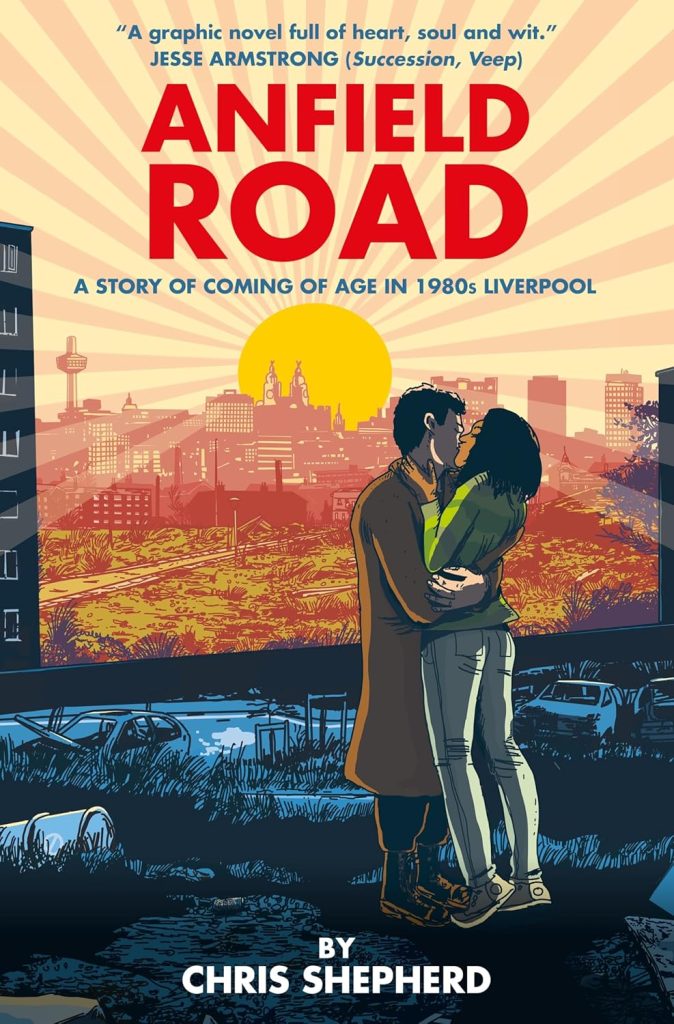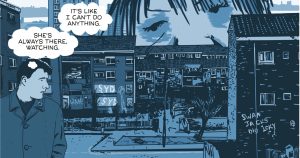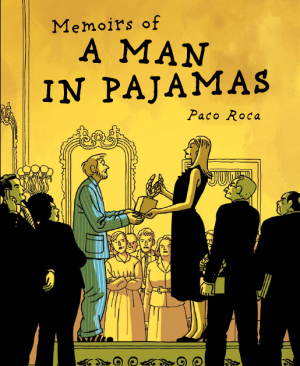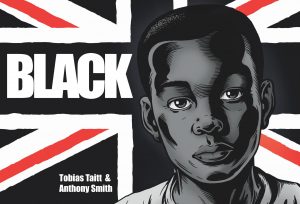Review by Frank Plowright
Conor Stirling’s teenage life is far from ideal. He’s the only artistic kid in a class full of football obsessed boys, and despite his not caring about the game he lives on Anfield Road, on the way to Liverpool FC’s stadium during their 1980s glory years. It’s his grandmother’s house and she’s raised him since both his parents left, his mother with the waiter from the Indian restaurant.
Anfield Road isn’t marketed as autobiographical, but with Chris Shepherd a writer raised in Liverpool during the 1980s it’s hard to believe he doesn’t funnel personal experiences into Conor’s story, particularly as it follows themes explored in Shepherd’s autobiographical film projects. His background certainly gives him an ear for dialogue, and the conversations between Conor and his eccentric, aggressive and opinionated grandmother Mary are delightful for their contrary nature.
For all the love between them, though, she and her illness trap Conor in Liverpool. There are elements of It’s A Wonderful Life in the way he’s prevented from leaving when he knows his future is elsewhere, and Shepherd makes good use of colour in contrasting the drab life Conor leads with the elusive promise of freedom. The art is very evocative, every panel a detailed recollection of a time in a place now bulldozed and redeveloped to be desirable. Shepherd shows how that wasn’t always the case, breaking open into full page depictions of how life was both inside and outside the tightly packed homes. Illustrations of bricks abound, with the detail accurate down to period graffiti on the bricks and the advertising posters around them. Ford Capris and Morris Marinas own the streets.
While Conor’s problems accumulate, Shepherd injects some optimism via a closeness with Maureen, despite a concern about his grandmother’s views about a Black face in the house. And there’s even some comedy. The best scene in a generally engaging experience is the bleak farce of Conor’s 18th birthday party, where absolutely nothing goes as planned. Much of Anfield Road is framed as if TV drama, where real life events impact on private grief.
Dramatic licence is applied toward the end when a legendary football match is switched to a Saturday afternoon, but it’s a fitting finale to an extended sentimental farewell. There is an epilogue sequence, the euphoria of escape, but the extended love letter to the past and the resolution of several relationships is what counts. Charm abounds, honesty prevails and the truth is in here.





